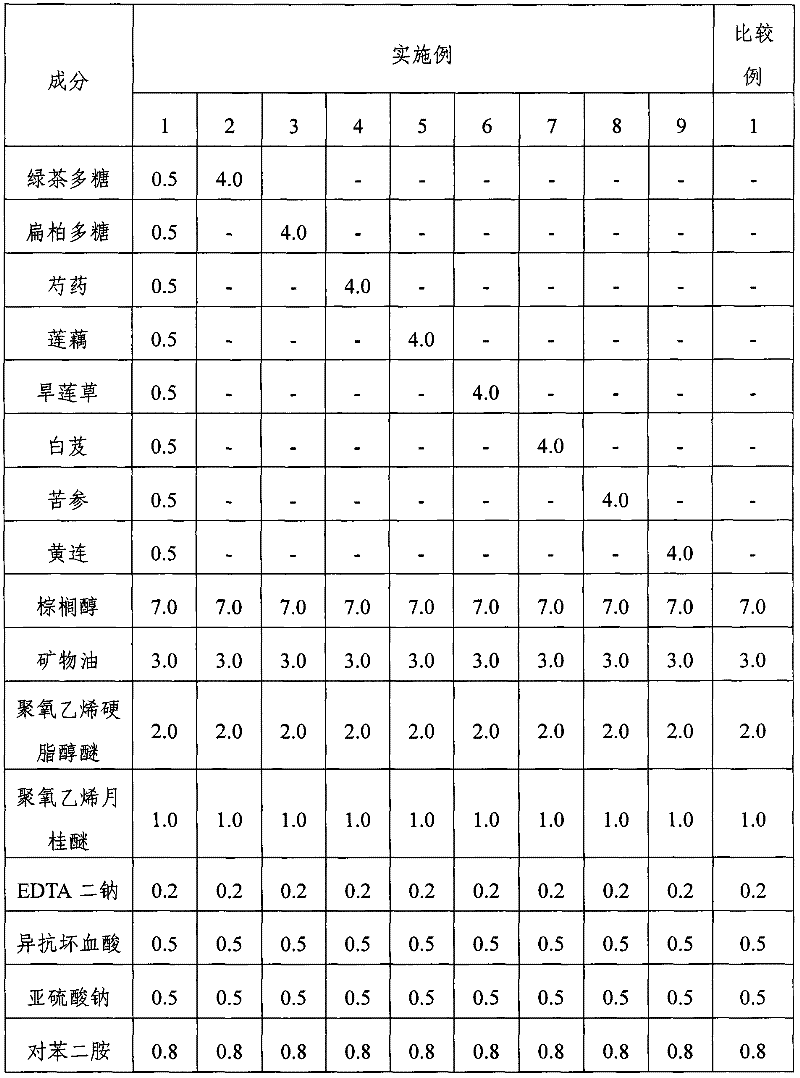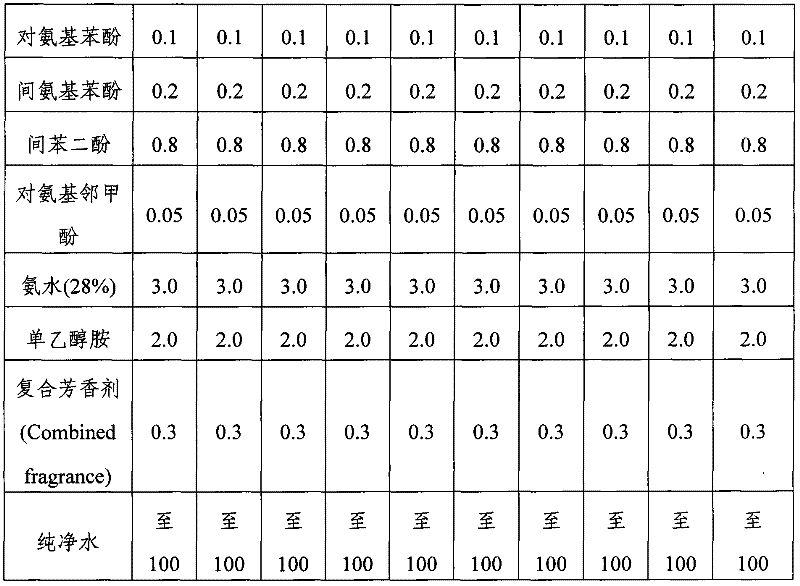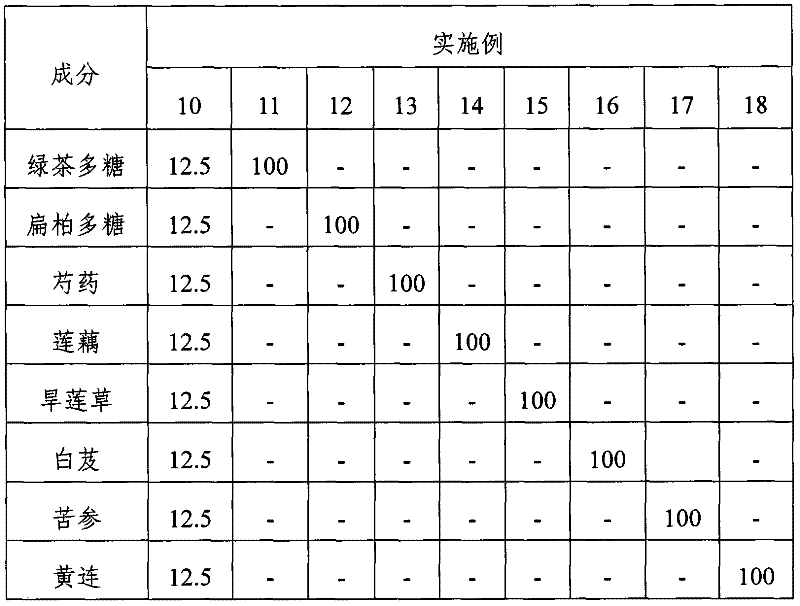Composition for oxidative dyeing containing natural materials
A technology of oxidative dyeing and natural substances, applied in the direction of cosmetics, cosmetic preparations, dressing preparations, etc., can solve the problems of not completely solving the irritation problem and poor dyeing effect, and achieve good hair dyeing effect, improved dyeing characteristics, and good color persistent effect
- Summary
- Abstract
- Description
- Claims
- Application Information
AI Technical Summary
Problems solved by technology
Method used
Image
Examples
preparation example Construction
[0033] Preparation of green tea polysaccharides: solvent extraction of ground green tea powder to remove chlorophyll and low-molecular-weight polyphenols, hot water leaching to obtain green tea polysaccharide extracts, concentration of the extracts under reduced pressure, removal of the polysaccharides by ultrafiltration low molecular weight free protein, precipitate green tea polysaccharide, and vacuum dry the precipitate to obtain green tea polysaccharide powder. Preparation of hinoki polysaccharide: adding water to dry hinoki leaves for extraction, concentrating the extract under reduced pressure, removing low molecular weight free protein therein through ultrafiltration, precipitating hinoki polysaccharide, and vacuum drying the precipitate to obtain hinoki polysaccharide powder.
[0034] Paeonia lactiflora belongs to the family Paeoniaceae, and its growth period is longer than peony. In oriental medicine, peony roots are washed and dried or soaked in boiling water and dri...
Embodiment
[0075] Examples and experiments will now be described. The following examples and experiments are for illustrative purposes only and are not intended to limit the scope of the invention.
[0076] Preparation Example
[0077] (1) Preparation of green tea polysaccharide
[0078] Green tea polysaccharides were prepared by solvent extraction as follows. Grind and sieve dried green tea leaves. The prepared green powder (d50=100-100 μm, 10 kg) was dissolved in 95% (v / v) ethanol (150 L) and stirred at room temperature. The prepared solution is centrifuged to recover the green tea residue after removal of chlorophyll and low molecular weight polyphenols. The recovered green tea residue was subjected to one more run through the solvent extraction method described above and then dried. Water (125 L) was added to the obtained green tea powder after removal of chlorophyll and low molecular weight polyphenols, and then stirred at 35° C. for 7 hours for hot water extraction.
[0079]...
experiment example 1
[0104] Experimental example 1: Confirmation of the effect of reducing stimulation by group test
[0105] In order to confirm the effect of alleviating scalp irritation, a test was conducted on people whose hair was difficult to dye due to irritation.
[0106] Divide 36 people into 9 groups. Each group (4 persons) was dyed with each of the hair dye compositions of Examples 1-9. They were then questioned to assess the degree of improvement in stimulation. As a control group, the composition of Comparative Example 1 and the second reagent (color developer) were used.
[0107] Each of the compositions of Examples 1-9 was mixed with the developer of Table 2 at a ratio of 60 g:60 g. Color your hair for 30 minutes.
[0108] Table 4
[0109]
[0110] And, divide 40 people into groups A, B, C, D, E, F, G, H, I and J, with 4 people in each group. Their hair was dyed using the following hair dye compositions and they were then asked to assess the degree of improvement in irritat...
PUM
 Login to View More
Login to View More Abstract
Description
Claims
Application Information
 Login to View More
Login to View More - R&D
- Intellectual Property
- Life Sciences
- Materials
- Tech Scout
- Unparalleled Data Quality
- Higher Quality Content
- 60% Fewer Hallucinations
Browse by: Latest US Patents, China's latest patents, Technical Efficacy Thesaurus, Application Domain, Technology Topic, Popular Technical Reports.
© 2025 PatSnap. All rights reserved.Legal|Privacy policy|Modern Slavery Act Transparency Statement|Sitemap|About US| Contact US: help@patsnap.com



